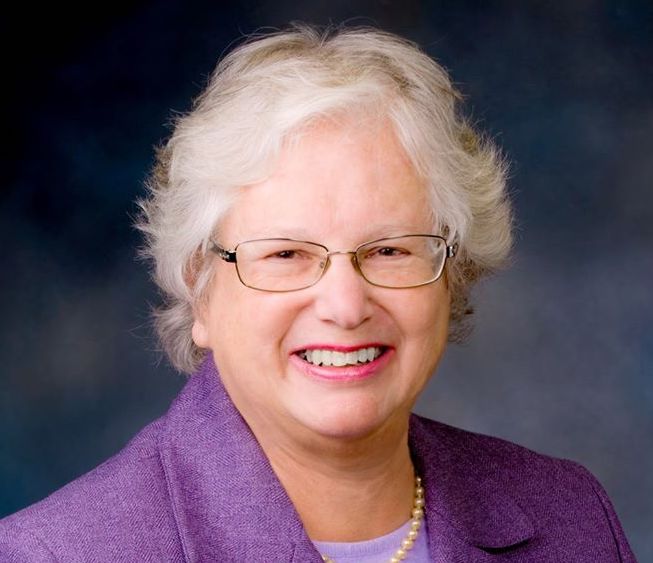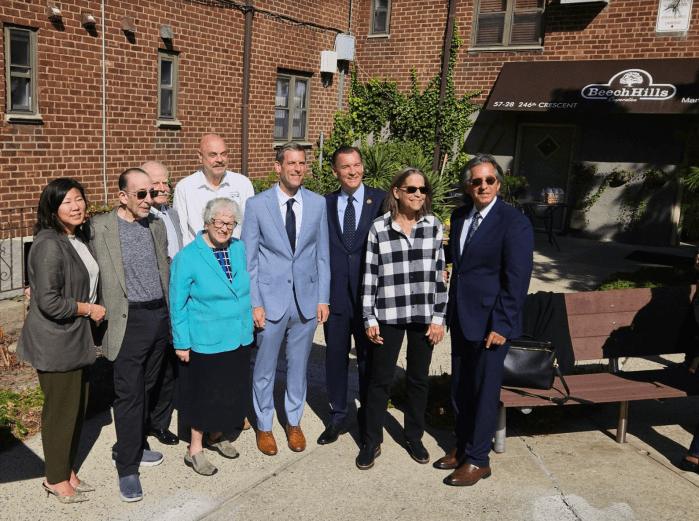By Bob Friedrich
Citizens uniting and fighting for a common cause is what civic associations are about. In Queens, there is no shortage of these neighborhood stalwarts and community watchdogs. Eastern Queens contains an unprecedented number of active civics that historically have worked well together to achieve great successes.
Case in point: the return of service along the former Q79 bus route, which traveled along Little Neck Parkway from Jericho Turnpike to the Little Neck Long Island Rail Road station. When the Metropolitan Transportation Authority abandoned this bus line two years ago, the result was devastating for thousands of residents in Little Neck, Glen Oaks and Bellerose, who were left without any affordable transportation alternatives.
Under the umbrella of Eastern Queens United, a dozen civics joined forces and galvanized into action. EQU held rallies protesting the Q79 demise and calling for full restoration. They met, plotted a strategy, created a viable proposal to restore service and presented it in August 2011 at a formal meeting with the MTA.
The EQU proposal sought to reroute every other Q36 bus to run along Little Neck Parkway, instead of terminating there as the Q36 currently does. EQU dubbed this new route Q36N — “N” for “north,” since it would run north along Little Neck Parkway.
Two weeks ago, almost a year to the day since the EQU-MTA meeting, the MTA announced restoration of several bus lines it had cut, including the Q79, with a plan that was almost identical to the one proposed by EQU. Will it be called the Q36N? Time will tell ….
By working closely with elected officials, EQU was able to maintain community pressure and keep the issue alive. When the MTA blinked and considered restoring service to some abandoned lines, the Q79 was on its radar. This is one example of the influence civics have when working together on clearly defined issues.
Another example of community leaders working together for a common purpose — and succeeding — is the Presidents Co-op & Condo Council, a think-tank of more than 60 co-op and condominium presidents whose mission is to keep housing affordable for the thousands of families and seniors living in their residential communities.
When the state Legislature recently adjourned without renewing two vital pieces of legislation, the PCCC jumped into action. The J51 Program provides millions of dollars of tax credits to co-ops and condos. This partnership between the city and its residential housing stock was created decades ago to assist with upgrading New York’s aging housing infrastructure.
The city Tax Abatement Program was also established long ago to bring tax fairness and equity to co-ops and condos that are taxed at substantially higher rates than one-, two- and three-family homes. Failure to renew these two programs will rob communities of precious resources needed to keep housing costs affordable and to protect and maintain infrastructure.
The PCCC was vociferous and relentless in its outreach, encouraging thousands of co-op and condo owners to contact their representatives and become fully engaged in the process. By doing so they were able to extract a rare promise from the governor, state Assembly speaker and state Senate majority leader to call a special legislative session before the year ended to extend these two programs retroactively.
These successes are examples of the enduring efforts of civic and community leaders. Although politicians often take credit for these outcomes, the true heroes are our civic-minded volunteers, working behind-the-scenes without fanfare to protect and preserve the quality of life of the communities they love and where they are proud to live, work and raise their families.
Bob Friedrich is a civic leader and the president of Glen Oaks Village.



































